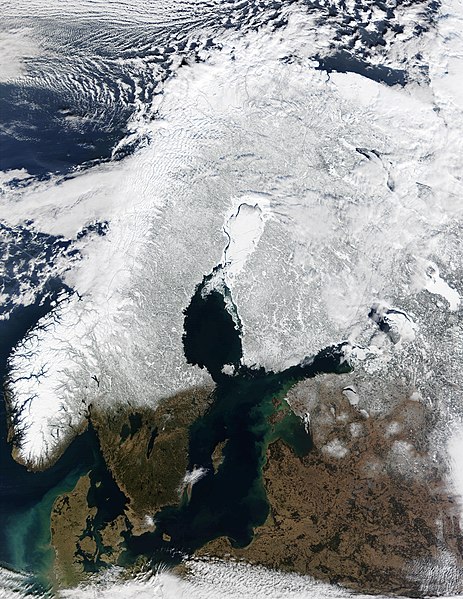Scandinavism, also called Scandinavianism or pan-Scandinavianism, is an ideology that supports various degrees of cooperation among the Scandinavian countries. Scandinavism comprises the literary, linguistic and cultural movement that focuses on promoting a shared Scandinavian past, a shared cultural heritage, a common Scandinavian mythology and a common language or dialect continuum and which led to the formation of joint periodicals and societies in support of Scandinavian literature and languages. The movement was most popular among Danes and Swedes. Nordism expands the scope to include Iceland and Finland.
A 19th-century poster image of (from left to right) Norwegian, Danish and Swedish soldiers joining hands. The Norwegian and Swedish flags have the union mark.
An 1856 meeting of Scandinavian students in Uppsala, Sweden, with a parade marching next to Svandammen
Scandinavia is a subregion of Northern Europe, with strong historical, cultural, and linguistic ties between its constituent peoples. Scandinavia most commonly refers to Denmark, Norway, and Sweden. It can sometimes also refer to the Scandinavian Peninsula. In English usage, Scandinavia is sometimes used as a synonym for Nordic countries. Iceland and the Faroe Islands are sometimes included in Scandinavia for their ethnolinguistic relations with Sweden, Norway and Denmark. While Finland differs from other Nordic countries in this respect, some authors call it Scandinavian due to its economic and cultural similarities.
Photo of the Fennoscandian Peninsula and Denmark, as well as other areas surrounding the Baltic Sea, in March 2002
Galdhøpiggen is the highest point in Scandinavia and is a part of the Scandinavian Mountains.
Scandinavism—a Norwegian, a Dane and a Swede




